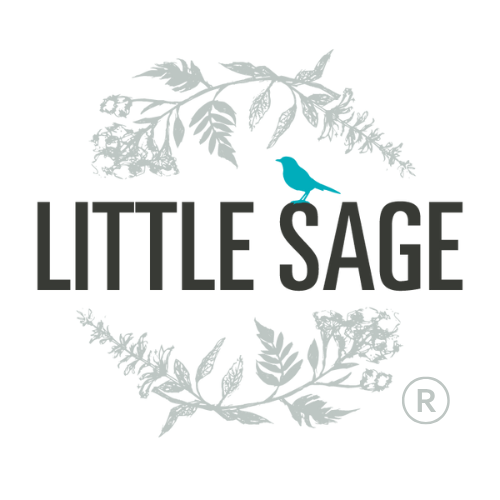Have you ever noticed how stress or worry can make you feel sick or tired? Or how feeling happy and relaxed can make you feel more energetic and healthy? This connection between our thoughts, emotions, and physical health is the essence of mind-body medicine.
Today, we'll explore what mind-body connection means and how mind-body therapies can help us achieve better health and well-being.
What is Mind-Body Medicine?
Mind-body medicine is an approach to health that recognizes the powerful connection between our mind (thoughts, emotions) and our body (physical health). It’s based on the idea that our mental and emotional states can significantly impact our physical health, and vice versa. This concept is not new but it's been a part of many traditional healing practices, like Traditional East Asian Medicine (TEAM), for thousands of years.
Understanding the Mind-Body Connection
In Traditional East Asian Medicine, the mind and body are seen as an interconnected whole, where each influences the other profoundly. Our mental and emotional states are deeply intertwined with our physical health. Beyond emotions, the mind encompasses thoughts, beliefs, consciousness, and intuition. All of them play a role in our well-being.
Thoughts and beliefs can powerfully influence how we see the world and our place in it. This extends to how we view our body’s ability to heal. I wrote about this in the Healing Power of Belief
Consciousness and awareness helps us connect deeply to our bodies. Mindfulness practices cultivate this awareness to enhance the mind-body connection.
Intuition and inner wisdom can help us attune into what we truly need to foster healing and vitality.
Key Concepts in Mind-Body Medicine
Qi (Chi) = our Vital Life Force or Vital Energy
In Traditional East Asian Medicine, Qi (pronounced "chee") is the vital energy that flows through our body along specific pathways called meridians.
When Qi is balanced and flows smoothly, you feel energized and well. However, when Qi becomes stagnant or blocked, it can manifest as physical symptoms.
Stuck or unexpressed emotions is a major cause of Qi becoming stagnant. When emotions such as anger, sadness or worry are not expressed or processed, this stagnation can lead to a variety of symptoms including tension, pain, and fatigue. For example, unexpressed anger is often linked to liver Qi stagnation, which can manifest as headaches or digestive issues.
Energy blockages in the body can disrupt the flow of Qi. This can weaken the body's ability to heal and maintain balance, leading to chronic conditions over time.
Yin and Yang
Yin and Yang is a major concept in TEAM that represents the complementary and interconnected forces at play in our life and in the universe. The balance between yin and yang is important for optimal health.
Yin is associated with qualities like rest, coolness, and introspection, while Yang embodies activity, warmth, and extroversion.
Health is seen as a balance between these forces. An imbalance can manifest as physical symptoms such as pain and fatigue or emotional symptoms such as overwhelm or depression and anxiety.
Meridians - Pathways of Energy
Meridians are the channels through which Qi flows, connecting different parts of the body. Each meridian is associated with specific organs and functions. When these pathways are clear, Qi can circulate freely, supporting health and well-being. Blockages can lead to symptoms like tension or discomfort.
Mind-Body Practices for Healing and Balance
Living with chronic illness can often feel like a constant struggle with fatigue, pain, and emotional overwhelm. But by embracing the wisdom of Traditional East Asian Medicine, you have access to a range of practices designed to bring back harmony and vitality.
These mind-body techniques offer a holistic path to healing, empowering you to take an active role in your well-being. Whether you're looking to get your energy flowing, find balance between rest and activity, or clear the pathways in your body, these tools can guide you toward renewed energy and a sense of inner peace.
Moving Qi to Remove Stagnation, Balance Yin and Yang and Clearing the Meridians
Qigong and Tai Chi is my favorite way to move Qi in the body. They are gentle movements that incorporate breath, movement and meditation. It is accessible for people of different abilities to exercise. Simple but profound. Especially if you can’t do traditional exercises because of your chronic condition, Qigong and Tai Chi can be modified.
You can click on these links to learn more about the benefits of trauma-informed Qigong and practice the Heart-Centered Embrace.
If you want to learn more, don’t miss my next free masterclass. Waitlist here.
Acupuncture is performed by a licensed acupuncturist and is a key part of Traditional East Asian Medicine healing. It involves the insertion of fine, sterile needles into specific points on the body. These points are located along meridians, or pathways, through which Qi flows. By stimulating these points, acupuncture aims to balance the flow of Qi, alleviate pain, and promote overall health and well-being. It's a practice that has been used for thousands of years to address a wide range of physical and emotional conditions, offering a natural and holistic approach to healing. If you want to know if acupuncture is right for you, contact our clinic to find out how it can benefit you.
Acupressure is a therapeutic technique that involves applying gentle pressure to specific points on the body. Unlike acupuncture, you don’t use needles. You stimulate these points with fingers or hands to release blockages, balance the flow of Qi, and alleviate symptoms such as pain and tension.
These points are located along meridians, the pathways through which Qi flows. It's a non-invasive practice that can be easily incorporated into daily routines, and can be done at home! In my online offerings, I also teach acupressure in combination with mindful movements.
Here are some resources to get you started to learn more about acupressure:
Herbal medicine is a cornerstone of Traditional East Asian Medicine, utilizing natural plant-based remedies to support health and balance within the body.
At our clinic, we specialize in creating a custom herbal remedy tailored to your individual needs, addressing specific symptoms and underlying imbalances.
Herbal medicine can help enhance the flow of Qi, balance Yin and Yang, and strengthen the body's natural healing processes. By integrating these natural treatments, you can experience improved vitality, reduced symptoms, and a greater sense of overall well-being.
Embracing a Holistic Path to Wellness
By integrating the principles and practices of Traditional East Asian Medicine into your life, you open the door to a holistic path of healing and balance. Whether it's through the gentle movements of Qigong and Tai Chi, the targeted relief of acupuncture and acupressure, or the natural support of herbal medicine, these tools empower you to take charge of your well-being.
As you cultivate the flow of Qi, balance Yin and Yang, and clear the meridians, you nurture not only your body but also your mind and spirit. Embrace this journey with an open heart, and discover the profound sense of vitality and peace that comes from aligning with the wisdom of your own body.

